by Mark Hudson | Dec 31, 2018 | Dryer Vent Cleaning
Dryer vents cause house fires. In fact, according to FEMA , 2,900 house fires occur each year due to clothes dryers, causing 5 deaths, 100 injuries, and $35 million in property loss. These numbers can be scary, and even more so when you realize when these fires occur–and why. Most clothes dryer fires occur in winter, peaking in January, and the majority of them are caused from dirty dryer vents.
100 Percent Preventable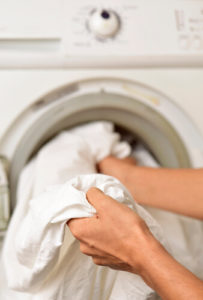
When it comes to clothes dryer fires, they are preventable. When the majority of these fires are caused by dirty vents, the prevention is obvious–clean the dryer vents. This is where we come in. A company like Hudson Chimney, which specializes in venting services including dryer vent services, can clean dryer vents annually to prevent dangerous buildup. Spending a little money now can prevent catastrophic costs and injuries later.
What a Dryer Vent Service Includes
Your dryer vent services will start with a diagnostic check. Many dryer vents are improperly installed, violating fire safety codes and causing your clothes dryers to be overworked, wearing them out and using extra utilities. When you schedule dryer vent services we’ll check out the installation, making sure the vent isn’t too long and doesn’t have too many angles. We’ll also make sure the dryer vent is venting outdoors and has a backdraft flap preventing airflow from wind gusts and air pressure. During the visit, we will also check for leaks that can slow airflow and add to build up. Our technicians will detach the vent from the dryer and clean lint out of the vent or hose with soft brushes and a high powered vacuuming system. This will clean out the system without damaging the vent itself.
Signs You Need a Dryer Vent Cleaning
Your dryer vent most likely needs to be cleaned if your clothes dryer isn’t working properly. Most homeowners mistakenly assume the clothes dryer is just fine, but wearing out. This is generally not the case.
–The dryer takes more than one cycle to dry a load of clothes.
According to manufacturers, the dryer should last ten years. If it fails to dry clothes in one cycle and is less than 5 years old, the dryer vent is likely clogged. Not only does running multiple cycles add to the clog, but it also uses 2 to 3 times more electricity, and shortens its life by 2 to 3 times! That means a unit that should last 10 years only lasts 3-5 instead. This is not only dangerous, but a bad investment.
–The dryer puts heat and moisture into the home.
When your dryer runs, it heats the house, or puts moisture into the air. This may be nice in winter–seemingly helping with heating costs–but it is dangerous. Most clothes dryer fires occur in January! This is not the time to allow a dryer to run dangerously in your home. It the dryer heats or puts moisture in the home, it means this heat and moisture isn’t being properly vented outdoors. This means there is a clog.
The time to schedule dryer services is as soon as you notice a problem with the dryer function. Call a professional who can assess and correct the situation before a dangerous accident occurs.
Schedule dryer vent cleaning or installation with Hudson Chimney today.
by Mark Hudson | Dec 14, 2018 | chimney maintenance
Now is the perfect time to schedule your chimney services to add safety and value to your fireplace experience this winter. You should not use a chimney or fireplace that has not been serviced in the last 12 months. Using it can result in serious damage, and it can cause a loss of value, property, injury, and even death. However, to get the most out of your fireplace, you need to schedule your annual chimney services!
Routine Maintenance
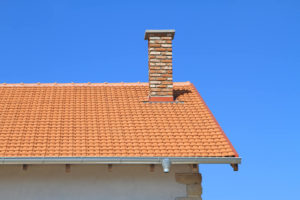 The most important services to complete annually for your chimney is your chimney sweeping and inspection. The Chimney Safety Institute of America (CSIA) and the National Fire Protection Association (NFPA) both agree that chimney systems need to be routinely cleaned and inspected. This keeps them running smoothly and more efficiently.
The most important services to complete annually for your chimney is your chimney sweeping and inspection. The Chimney Safety Institute of America (CSIA) and the National Fire Protection Association (NFPA) both agree that chimney systems need to be routinely cleaned and inspected. This keeps them running smoothly and more efficiently.
- Chimney Sweeping – When you schedule a chimney sweep with Hudson Chimney, you can count on a mess-free and professional experience. A certified professional will tarp off the area to prevent a mess, and they use brushes, rods, and a high-powered vacuum system to clean away all soot and creosote. Then they also inspect the exterior of the system. If there is a major issue with your chimney, we’ll know. We document our findings and present it to you, including photos and video footage, if necessary.
- Chimney Inspection – When you schedule a chimney inspection with Hudson, and you can count us. Our professionals will thoroughly inspect the interior and exterior of the system. They will check for all readily accessible portions and accessible portions, and they will even remove components if necessary to access the hazards. There are three levels of inspection, this allow us to search and inspect what is necessary without wasting time, resources, and money. If you schedule a level one inspection or a level two, and a level three is necessary, we will discuss options with you. Our goal is safety and function for your home and family, and we will do whatever it takes!
Preventative Care
However, sometimes even when you do all the necessary routine maintenance for your chimney system, things can still happen to cause damages. For example, high winds can dislodge your flashing, a flue fire can crack a liner or masonry, or seismic activity can shift masonry, cause gaps, or more.
Even minor cracks can become serious gaps and voids after a season of winter weather. You should avoid unnecessary damages by scheduling preventative measures now.
- Waterproofing – We treat chimneys with a waterproofing agent that protects your masonry all season long, year-after-year, is vapor-permeable. It doesn’t affect the way your masonry look either!
- Repairs – In addition to preventative services, repairs are essential for preventing winter damage. As soon as you notice a problem, or get a report of damage from your inspector, a repair should be scheduled. We repair parts and masonry to keep your family safe.
Contact Hudson Chimney today so that your fire is safe and warm all winter long. Call 904-282-4159 or contact us online.
by Mark Hudson | Nov 29, 2018 | Firewood
At this time of year, it may be difficult to find firewood when you need it. Why? Because many suppliers have been selling out their supply for months and any wood you cut now will not be good for burning. In order for your fireplace, stove, or insert to work properly, you must burn only properly seasoned firewood. This means your wood should be cut many months before burning, and stored until winter.
Can You Burn Fresh Wood? 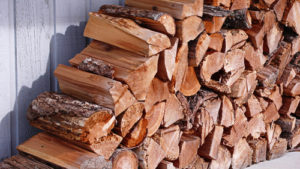
Yes. You CAN burn freshly cut wood. If your family is freezing, and the only wood you have to burn is freshly cut, it will burn. It will be difficult to light, will not reach a high temperature, will burn incompletely, produce more smoke than heat, and will put more creosote in your chimney than necessary. To reach the desired temperature, a homeowner may use three times more wood than you would with properly seasoned firewood. This wastes fuel and damages your system.
Properly Seasoned Wood
Your firewood was once a live tree which stored and used water in order to live. When it’s cut, it likely has a water content higher than 75 percent. When you burn this “green” or “wet” wood, it has to first evaporate the water before burning the fuel (wood). Think about it like this: you’re camping in the rain and attempting to light a fire. Would you use wood that has been soaked with rainwater, or would you dig through brush and grasses to find dryer pieces? Firewood is the same. The best-burning wood is cut and allowed to dry for 3-6 months before being burned. This ensures a water content of less than 35 percent.
DIY Seasoned Firewood.
First, find a good supply of the type of tree you’d like to harvest. Harder species of wood burn differently than softer ones, but all will burn well when properly-seasoned.
Next, cut the tree down, and cut it to the desired length. Letting the wood sit like this will allow water to drain and evaporate from the ends faster than letting a felled tree dry. Letting the whole tree sit will likely result in a rotted tree, not seasoned firewood.
Finally, store the firewood until you need it. If you wait to split your firewood until it’s dry, it will be easier to split and lighter to carry.
Buying Firewood
It may be that you do not have a good source for firewood on your land. You can still have a wood fire by purchasing seasoned firewood from a local supplier. When searching for a supplier, look for wood that is cut and stacked in piles that look seasoned. It is seasoned firewood if it is gray in color, light in weight, has cracks along edges, and the bark pulls away from the flesh. Don’t pay too much for a cord or rank of wood. Make sure you understand what these terms mean, and how much you should be paying.
How to Store Your Supply
Whether you’re storing bought or self-cut wood, use an open pile, a tarp, or a shed. The only mistake you can make storing firewood is enclosing it tightly to prevent airflow. Air and light are necessary to season the firewood properly.
Hudson Chimney can help you determine if your fireplace problems are from improper wood. We may even be able to help you find a supplier. Contact Hudson Chimney today for help at 904-282-4159.
by Mark Hudson | Nov 15, 2018 | Dryer Vent Cleaning
At Hudson Chimney, we take your safety seriously. Fire safety goes further than just your fireplace and furnace. It’s also important to maintain your clothes dryer vents. Clean dryer vents prevent fires, improve function, and save you money.
Signs You Need Dryer Service
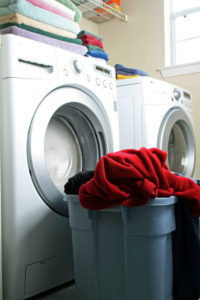 If your clothes dryer was not installed professionally, it’s likely not working at its maximum efficiency. Only a professional knows the ins and outs of fire safety codes, both federal and local. They will certainly know about the safety of your vents. Many homeowners mistakenly assume a store delivery is an installation. This is not true, and it will put your family at risk. If you haven’t had your vent professionally cleaned or installed, call now and schedule these services. Other signs maybe present because of normal wear-and-tear, but these issues actually needs your attention.
If your clothes dryer was not installed professionally, it’s likely not working at its maximum efficiency. Only a professional knows the ins and outs of fire safety codes, both federal and local. They will certainly know about the safety of your vents. Many homeowners mistakenly assume a store delivery is an installation. This is not true, and it will put your family at risk. If you haven’t had your vent professionally cleaned or installed, call now and schedule these services. Other signs maybe present because of normal wear-and-tear, but these issues actually needs your attention.
- The dryer warms up the house. If your dryer causes your house to warm up or is hot to the touch, the heat isn’t being carried outside as it should. This may cause your clothes to be excessively hot.
- Moisture and lint cover surfaces in the laundry room. Moisture, lint, and heat should all be carried out of the house through the dryer vents. However, if there is a clog, the lint and moisture enters the air and affect the breathable air to damage wall coverings and furniture.
- It takes more than one cycle to dry a load of clothes. Manufacturers say new clothes dryers should last about ten years. If yours requires more than one cycle and less than three years old, it has clogged vents.
Wasted Money, Dangerous Hazard
A clogged vent presents a hazard every single day your dryer is in use, and it also wastes money! When your dryer takes 2-3 cycles to dry properly, it costs you 2-3 times more electricity and shortens the life of the dryer by 3-5 years. By assuming the dryer is worn out, homeowners use the dryer every day as if it’s fine, which put your home and family at risk. Instead, you should have your dryer installed professionally, in compliance with safety codes, and professionally serviced annually.
At Hudson Chimney, we’re committed to offering dryer vent services to protect families, businesses, and the environment in our service area. We check your vent for leaks, make sure the outlet is back-draft protected, and use a high-powered vacuuming system to remove all lints and debris from your system.
For more information visit www.dryersafety.org or call a professional at Hudson Chimney–where we don’t just service chimneys, but dryer vents and more. Not sure we have what you’re looking for? Call for more information at 904-282-4159.
by Mark Hudson | Oct 30, 2018 | Chimney Leaks
Chimney leaks are a common problem and something we often see at Hudson Chimney. Tropical storm weather and frequent rains can lead to chimney leaks that lead to serious chimney damage. Water can wreck a chimney in no time, and must be detected and repaired as soon as possible, so dripping in the chimney system is a serious issue.
Signs of a Chimney Leak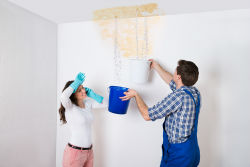
Dripping in the chimney system is only one sign of a chimney leak. It may be one of the first signs of a leak that a homeowner recognizes. Usually visible or obvious signs aren’t detected until major damage has occurred behind the scenes, and that’s because they aren’t sure what the signs are.
Dripping
If your chimney system has a dripping sound or visible dripping, there is a drip inside, probably causing water to pool on the smoke shelf, damaging interior parts, and allowing mold and mildew to grow.
Stains
Green and dark green staining on the fireplace interior is a sign of a prolonged leak. Rust stains on the chimney exterior, near the top, is a sign of a leak that is causing the cap or chase to leak. White stains on the exterior (efflorescence) is a sign that water is moving through the masonry and leaving deposits on the outside of the masonry.
Odors
If odors are present in the system, there is most likely water inside. This may be mildew or moldy odors, or even the smell of barbecue (which also indicates a dirty chimney).
Leaks
Even if there are leaks in other areas of the house, the problem is usually the chimney. Water moves through the chimney, travels through walls, ceilings, and floors, and then pools at a low point before forming a leak. If your house has a leak, don’t call the contractor! Call a chimney professional.
What Water Does
If you notice dripping or other signs of chimney leaks, you must call a professional right away. Water damage can cause deterioration, structural damage, rusted and damaged parts, water damage to the rest of the home, and even leaning and crumbling of the system. It is not just a situation where the risk of fire is higher, but also that the structure itself can become dangerous.
If chimney leaks are not repaired as soon as they’re detected, then your system can take on more damage during tropical storm season as well as winter. A professional should correct the problem right away, whether it’s replacing the cap, crown, flashing, or repairing the masonry. An amateur or general contractor may repair the water damage, but a chimney professional will fix the problem at the source. A Hudson Chimney sweep will leave your chimney in the best shape–probably better than it’s been since you’ve owned your home–and help it last a lifetime.
Call Hudson Chimney for all your chimney care in Jacksonville, Florida area today at 904-282-4159.

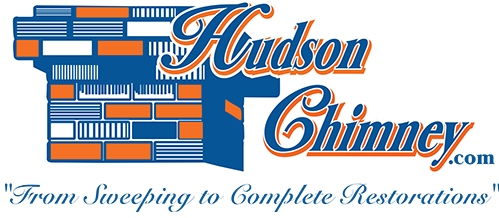
 The most important services to complete annually for your chimney is your chimney sweeping and inspection. The Chimney Safety Institute of America (
The most important services to complete annually for your chimney is your chimney sweeping and inspection. The Chimney Safety Institute of America (
 If your clothes dryer was not installed professionally, it’s likely not working at its maximum efficiency. Only a professional knows the ins and outs of fire safety codes, both federal and local. They will certainly know about the safety of your vents. Many homeowners mistakenly assume a store delivery is an installation. This is not true, and it will put your family at risk. If you haven’t had your vent professionally cleaned or installed, call now and schedule these services. Other signs maybe present because of normal wear-and-tear, but these issues actually needs your attention.
If your clothes dryer was not installed professionally, it’s likely not working at its maximum efficiency. Only a professional knows the ins and outs of fire safety codes, both federal and local. They will certainly know about the safety of your vents. Many homeowners mistakenly assume a store delivery is an installation. This is not true, and it will put your family at risk. If you haven’t had your vent professionally cleaned or installed, call now and schedule these services. Other signs maybe present because of normal wear-and-tear, but these issues actually needs your attention.